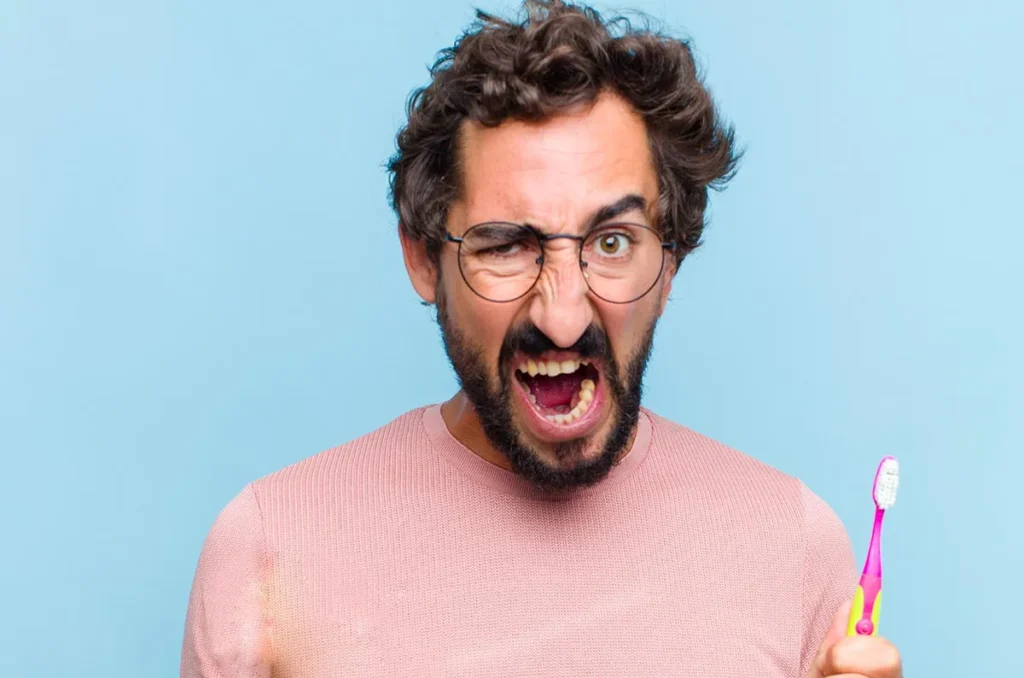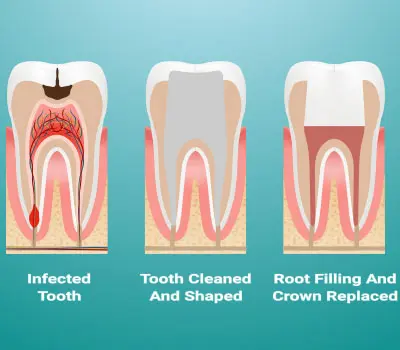
Yes, dentists recommend that you continue to brush your teeth after a root canal. In fact, maintaining good oral hygiene is important for the success of your root canal treatment. After a root canal, you may experience numbness in your mouth due to the local aesthetics. Once the aesthetic goes away, you may brush and floss as usual. However, consider using a toothbrush with softer bristle and opt for a toothpaste that is specially formulated for sensitive teeth until the sensitivity subsides or when the temporary filling is replaced with a permanent dental crown.
It is important that you continues to brush your teeth twice a day and floss daily. This is to remove any plaque that may form and prevent any further dental problems. You may also rinse your mouth with a mouthwash, although it is recommended to wait for at least 24 hours after the root canal surgery so that the sensitivity is reduced to a minimum.
If you are unsure about how to care for your teeth after a root canal, consult your local dentist or endodontist and they provide specific instructions on how to care for your treated tooth after a root canal.
What Is a Root Canal?
A root canal is a dental procedure that is used to remove infected or damaged tissue from inside a tooth. The tissue, known as the pulp, forms the inner layer of a tooth and is made up of nerves, blood vessels, and connective tissue. When the pulp tissue becomes infected or damaged, it can cause pain and lead to an abscess (a pocket of pus) if left untreated. To save the tooth from an extraction, a root canal is done by removing the infected pulp and replacing it with an inert material.

During a root canal, the endodontist numbs the area around the infected tooth and create an opening at the top. Using special instruments, the infected or damaged tissue is removed from the inside of the tooth.Once the pulp chamber and root canal are clean and is free of infection, the inside of the tooth is filled with a special dental filling to seal the tooth. A dental crown is then placed on top to protect and restore the tooth to its original groove.
Root canals are generally a safe and effective procedure. While some people may experience pain and discomfort, it generally goes away within the next 24 to 72 hours of the surgery. In fact, most patients are relieved of the intense pain caused by the infected tooth that is now repaired!
What to Do After Root Canal?
After a root canal surgery, it is important to follow the post-procedure instructions provided by your dentist to ensure a successful recovery. This may include taking medications as prescribed, avoiding certain foods and activities, and returning for follow-up visits.

Here are some general guidelines for caring for your teeth after a root canal:
- Take any prescribed medications as directed. This may include painkillers, antibiotics, or other medications. It is important to follow the dosage and duration of treatment as directed by your dentist or endodontist.
- Keep the treated tooth clean. You can brush your teeth and floss as usual, but be gentle around the treated tooth. Avoid biting down on hard or chewy foods until your dentist or endodontist advises you that it is safe to do so.
- Protect the treated tooth by going on a soft food diet. Your dentist or endodontist may place a temporary filling or crown on the treated tooth to protect it while the root canal is healing and a permanent crown is being made. During the time being, go on a soft food diet. These include pasta, scrambled eggs, cooked fish, mashed potatoes, meatloaf, cooked vegetables, yogurt, and smoothies.
- Follow up with your dentist or endodontist. Your dentist or endodontist will likely schedule a follow-up appointment to check on the healing of the treated tooth and to determine if further treatment is needed. It is important to attend these follow-up appointments as scheduled.
If you are experiencing swelling in your mouth, it may be signs of a post-root canal infection. Consult your dentist immediately.
What Not to Do After Root Canal?
Here are some things you should avoid doing after a root canal:
- Avoid eating hard or crunchy foods. These foods may cause further damage to the treated tooth or dislodge the temporary filling.
- Avoid smoking or using tobacco products, as they can irritate the treated tooth and slow the healing process.
- Avoid drinking alcohol for at least 24 hours after the procedure, as it can irritate the treated tooth and affect the healing process.
- Avoid using over-the-counter (OTC) pain medication without consulting your dentist or oral surgeon. Some pain medications may interfere with the healing process or cause negative side effects.
- Avoid brushing or flossing the treated tooth for at least 24 hours. This can cause further irritation and damage to the tooth.
- Avoid participating in contact sports or any high-impact activity that may result in injury to the treated tooth.
- Avoid biting or chewing on the treated tooth until your dentist gives you the green light. Biting or chewing on the treated tooth too soon can cause further damage.






